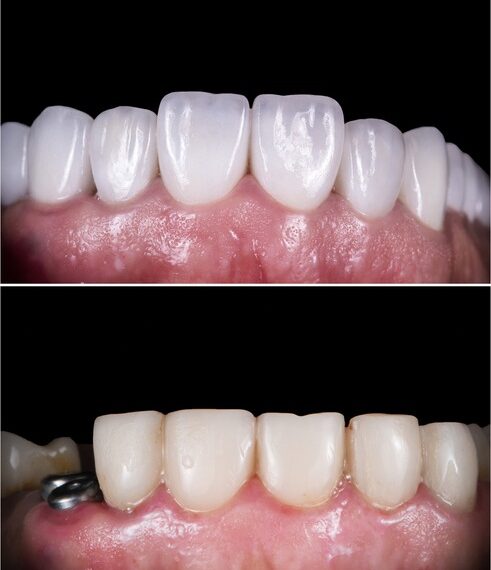Considering dental implants can be both exciting and a little daunting. Maybe you’re tired of dentures, or you’re missing a tooth and want it replaced with something permanent. Regardless of your reasons, it’s important to know what you’re signing up for. So, what should you expect from dental implants? Let’s chat about it in a way that’s easy to digest.
The Basics of Dental Implants
Dental implants are essentially replacement tooth roots. They provide a strong foundation for fixed or removable replacement teeth built to match your natural teeth. If you’re unfamiliar with them, picture a small post, typically made of titanium, that’s placed into your jaw. Over time, this post fuses with your jawbone, acting like a natural root.
Why Choose Dental Implants?
-
Improved Appearance: Implants look and feel like your own teeth.
-
Better Comfort: Since they become part of you, there’s no discomfort like with removable dentures.
-
Simplified Eating: Chew without pain or worry.
Who is a Good Candidate?
Not everyone is an ideal candidate for dental implants, but most people who are in good health, have healthy gums, and have enough bone to hold an implant can consider them. The suitability for dental implants is ultimately a decision made between you and your dental professional.
Initial Consultation
The first step involves a dental evaluation. Your dentist will check the condition of your mouth, teeth, and gums and assess the amount of jawbone available. They might also take x-rays or 3D images of your mouth.
The Process of Getting Dental Implants
Getting dental implants usually involves several steps over a few months. Here’s a brief rundown:
-
Planning: Your dentist will devise a personalized treatment plan.
-
Implant Placement: The titanium post is surgically positioned in the jawbone below the gum line.
-
Osseointegration: As you heal, your jawbone grows around and integrates with the implant, usually over a few months.
-
Abutment Placement: Once the implant is secure, an abutment (the piece that holds the crown) is placed on the implant.
-
Crown Placement: Finally, a crown is created to match your natural teeth and attached to the abutment.
Recovery and Aftercare
Post-surgery, you might experience minor discomfort, some swelling, bruising, or slight bleeding. Over-the-counter pain relief medication can help manage this. Your dentist will provide specific aftercare instructions to keep your mouth healthy.
Long-term Maintenance
-
Brush your teeth and floss as you normally would.
-
Regular dental checkups and professional cleanings are essential.
-
Avoid habits such as smoking that can affect dental health.
To learn more about dental care options and maintenance, you might also want to learn more about children’s dentistry and how it can influence lifelong oral health habits.
Benefits Beyond the Basics
Some perks to dental implants often go overlooked. For instance, the stimulation of the jawbone helps prevent bone loss, a common issue when missing teeth. They also don’t require reducing other teeth, as a tooth-supported bridge does.
Things to Consider
While dental implants offer numerous benefits, they aren’t for everyone. Costs, time, and personal health are all factors to consider. Discuss with your dentist what’s right for you. It’s also smart to take a closer look at any current medications or health conditions that might impact the procedure.
Common Concerns
Pain and Discomfort
Many worry about the pain involved in dental implants. However, most find the pain level to be similar to routine dental procedures. Proper anesthesia should minimize any discomfort during the procedure.
Success Rates
Dental implants boast a high success rate, often reported as upward of 95%. Factors such as the location of the implant in the jaw can affect success rates, but these are generally reliable long-term solutions.
Exploring Alternatives
While discussing options with your dentist, you might take a deep dive into other solutions, such as bridges or dentures, to find the most suitable option for your lifestyle and budget.
Dentures
-
Less invasive
-
Typically, more affordable initially
-
May require more maintenance and adjustment over time
Bridges
-
Good for replacing small areas of missing teeth
-
Can be less expensive upfront
-
May impact adjacent teeth for installation
Before You Decide
Discussing concerns with your dentist is essential. Understanding the procedure, costs, and your role in dental health makes a big difference. Gather all necessary information and assess all angles to ensure the best choice. Clear communication with your dentist helps prevent misunderstandings and reduces anxiety. Knowing what to expect and how to maintain your teeth afterwards strengthens your commitment to long-term dental health. A well-informed decision will lead to better outcomes and satisfaction.
Final Thoughts
Dental implants enhance your quality of life by improving your smile and oral health. They offer a strong, natural-looking solution for missing teeth, though they require a significant investment of time and money. With proper maintenance, implants can last a lifetime, providing both functional and aesthetic advantages. They help in better chewing, speaking, and maintaining facial structure, ultimately boosting your confidence and comfort.





